It is an economic sector, not just state management.
Speaking at Group 10 (including delegations of National Assembly deputies from Thai Binh, Dong Thap, and Ha Giang), according to Vice Chairman of the National Assembly Nguyen Khac Dinh, the new draft law stipulates that water resources include underground water, surface water, rainwater, and seawater, but there is no provision for wastewater. In today's world , wastewater is a resource and water sources are increasingly depleted, and the law also raises the issue of reusing wastewater.
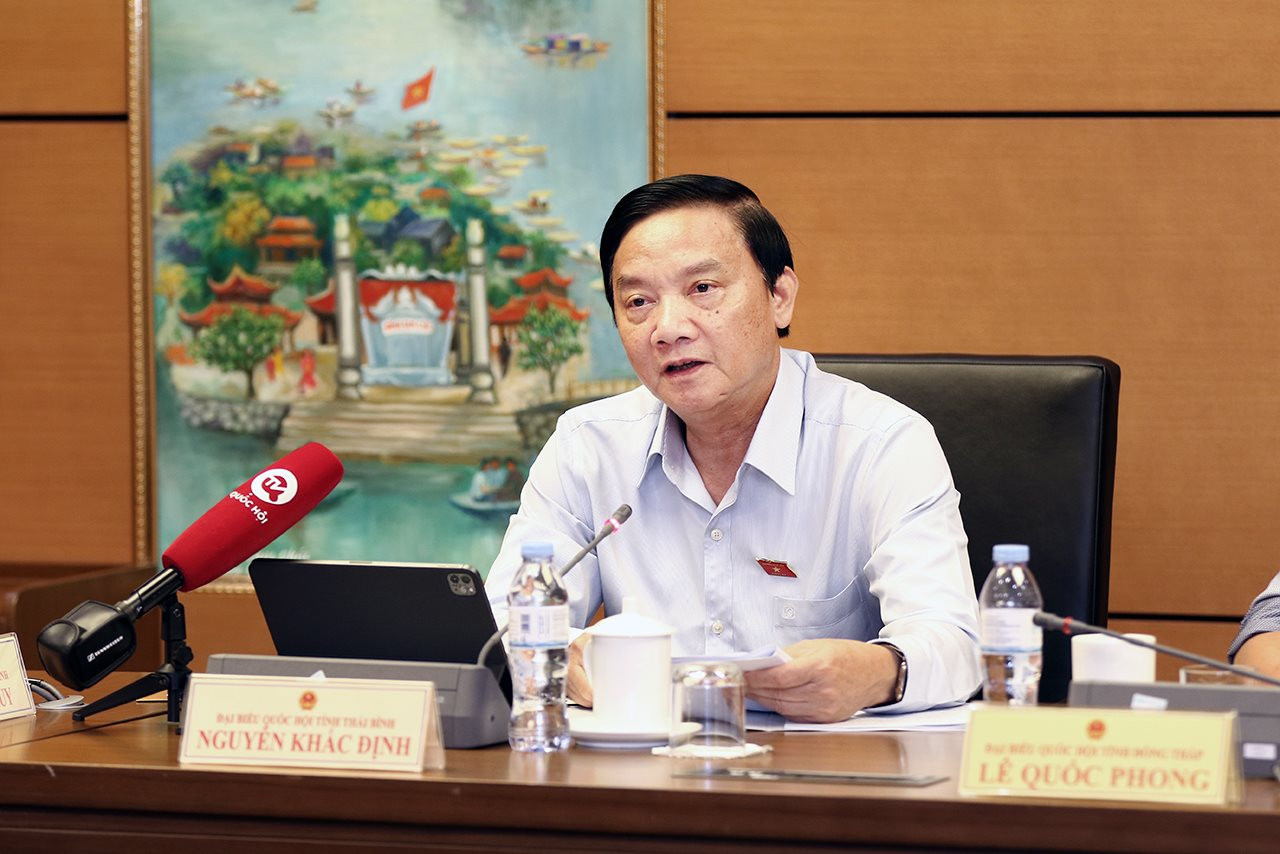
In our country, the main water flowing in is river water from China, Laos, Cambodia and there are only 2 rivers flowing out, the Ky Cung River and the Serepok River. According to statistics, in our water source, only 93% flows in, only 6% flows out, the rest is rainwater. Meanwhile, the water source is the forest, which is increasingly depleted, therefore, the problem of water resource management is not a single sector but a multi-sector problem.
Water resources in our country are abundant compared to the world but are unevenly distributed in terms of territory and time. There is a surplus in the rainy season and a shortage in the dry season, such as in Khanh Hoa. In the rainy season, there is a surplus of 3 billion m3 of water, but in the dry season, there is a shortage of nearly 800 million.
In addition, our water resources are facing the problem of wasteful use, overexploitation, and serious pollution, which are issues to be resolved in the Draft Law. Meanwhile, not reusing much leads to millions of cubic meters of wastewater being discharged every day, which if technology could be used to reuse, would be very good and valuable instead of having to drill, chisel, etc. to create water sources. Waste and loss have been reported in our country from 37 - 50%.
Therefore, the above issues need to be raised in the Draft Law because water is not something that is given by God for free but is a valuable asset and commodity, and is becoming more and more valuable, so the State must regulate water like regulating electricity. At the same time, because water is a commodity, and as a commodity, it must be paid for, and water resources must be an economic sector, not just a State management sector. Therefore, the Drafting Committee needs to continue research to complete the Draft Law.
Socialization so that water is no longer "free"
On the afternoon of June 5, the National Assembly held a group discussion on the draft Law on Water Resources (amended). Participating in group 8, delegate Ta Thi Yen (Dien Bien delegation) expressed concerns about water pollution.
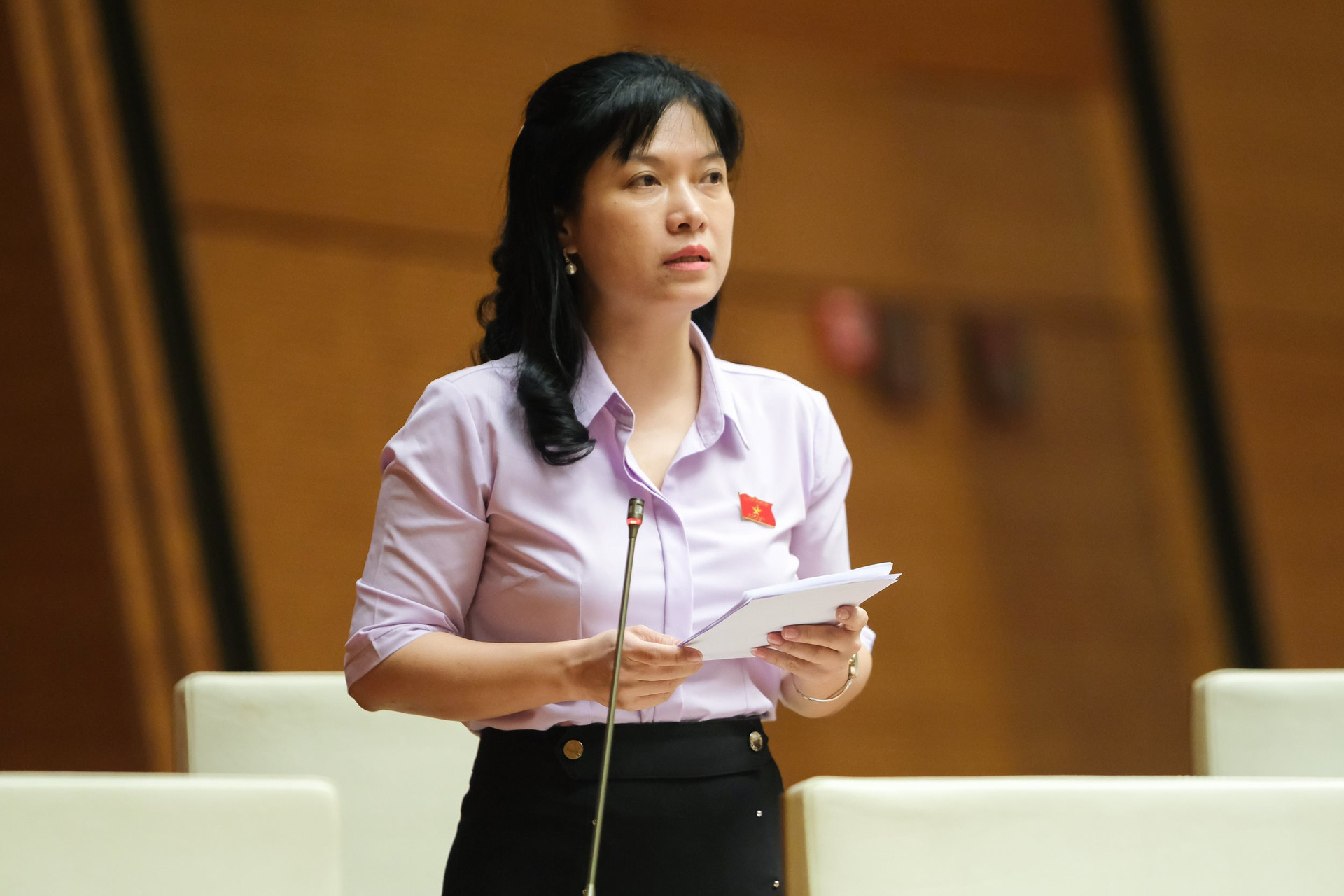
Delegates raised the issue: According to a study by the World Bank, if no intervention is taken to prevent water pollution threats, Vietnam's economy could lose about 6% of GDP each year from 2035 compared to a scenario without threats. The main threat is the impact of polluted water on human health, which could reduce GDP by 3.5% by 2035. A smaller impact of about 0.8% on rice productivity is due to the effects of poor water quality. This model does not take into account the economic consequences of other forms of water pollution, including saltwater intrusion of surface and groundwater. High levels of pollution also limit the sustainable development and future of industries and agriculture. Vietnam will spend about 12.4 - 18.6 million USD per day on pollution treatment costs by 2030 if no timely measures are taken.
Therefore, the delegate said that the synchronous regulations with a number of specialized laws on planning, environmental protection, investment, etc. are very important to ensure the exploitation of water resources, prevent degradation, depletion, and pollution of water resources. At the same time, it is necessary to avoid economic losses for organizations and individuals when investing in the construction of water exploitation and use works and the rights of organizations and individuals exploiting and using water resources. "Before adjusting and supplementing water exploitation and use works, it is necessary to determine the suitability of the works with the planning of water resources, water source functions, water source capacity, as well as the impact on the exploitation and use of other water sources," Ms. Ta Thi Yen emphasized.
In addition, female delegate Ta Thi Yen also proposed to carefully review regulations related to current taxes, fees, and charges to create revenue sources as well as resources for implementing water resource management activities from the State budget. At the same time, create conditions for mobilizing service revenue sources and contributions from organizations and individuals.
The female delegate agreed with the policies in the draft Law on socialization of the water sector so that water has a price and is no longer “free”, thereby encouraging responsible, economical and effective use of water. “At the same time, encouraging organizations and individuals to participate in investing in protecting, developing, storing water and restoring water resources are important activities to ensure water security, sustainable development, storing and restoring water resources,” Ms. Yen emphasized.
Clarifying the regulations on determining “Minimum Flow”
Discussion Group No. 7 (including the National Assembly Delegations of Thai Nguyen, Lam Dong, Ba Ria - Vung Tau, Long An), delegate Nguyen Thi Yen, Standing Deputy Secretary of the Provincial Party Committee, Head of the National Assembly Delegation of Ba Ria - Vung Tau province, said that the 2012 Law on Water Resources, after 10 years of adjustment, has contributed to creating positive changes in the awareness and actions of the whole society. Water resources are managed and used more effectively and sustainably. However, some shortcomings and limitations have also been revealed during the implementation process, and it is necessary to amend and supplement to ensure compliance with reality, further improve effectiveness and efficiency, remove difficulties... Therefore, delegates agreed that the National Assembly's comments on amending this Law are very necessary.
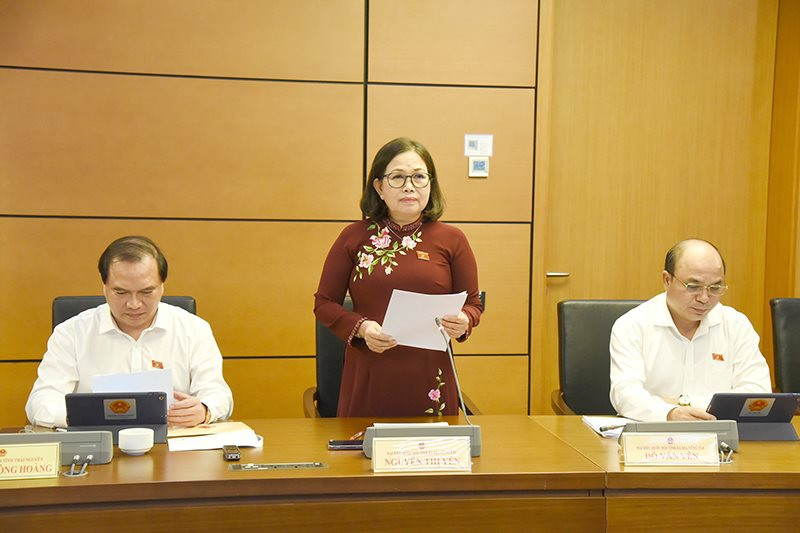
Regarding the scope of regulation (Article 1), the delegate found that according to the provisions of Clause 2, Article 1, “Groundwater…” is not within the scope of regulation of this Law. However, in the draft law, there are many articles that stipulate management contents related to “Groundwater” from Discharge; Exploitation; Protection; Supplementation; Exploration, Practice; Licensing, etc. (for example at Point a, Clause 3, Article 12; Clause 2, Article 15, Article 26, Article 30, Article 40, Article 52, etc.). Thus, it is inconsistent and not within the scope of regulation in Article 1. Therefore, the delegate suggested that the drafting committee should review it again, if it is not within the scope of regulation of this law, it must be brought up. However, the delegate suggested that the drafting committee consider that “Groundwater” should be regulated by this Law, because “Groundwater” is also a water resource defined by this law in Clause 1, Article 3.
Regarding minimum flow (Article 25) and Groundwater exploitation threshold (Article 26): Delegates said that the regulation on "Minimum flow" is a new content in the draft law and according to the regulation in Clause 2, Article 25, "Minimum flow" is the basis and basis for consideration in the process of appraisal and decision of many important tasks such as: Water resources planning, provincial planning, planning of specialized technical nature; Reservoir operation process; Granting licenses for exploitation and use of water resources...
Thus, the determination of “Minimum Flow” must be implemented first,… However, the draft law does not stipulate the time when it must be done, completed, and announced,… as well as the methods, tools, standards, and regulations related to determining the flow level at what level is considered the lowest in international, inter-provincial, intra-provincial rivers and streams, reservoirs, dams,…. If this issue is not or has not been determined, can the national water resources plans, provincial plans, and many other plans be approved? Therefore, it is recommended that the drafting committee consider the provisions in Article 25.
Similarly, regarding the provisions in Article 26 of the draft law on “Groundwater exploitation threshold”, delegates suggested that the drafting committee consider reviewing it, as it also has some similar contents to Article 25. “Groundwater exploitation threshold” is also the basis for consideration in the process of appraisal and decision of many important tasks related to planning…, but the draft law has not yet stipulated the method, time, method, and standards for determining the “Groundwater exploitation threshold”.
Amending the Law to unify and maximize the exploitation of natural resources
Delegate Trang A Duong (Ha Giang National Assembly Delegation) agreed to amend the 2012 Law on Water Resources to complete a synchronous and unified legal corridor to maximize the exploitation of natural resources, allocate them reasonably and use them effectively, ensure national water security, clearly define the responsibility for water resource management and the responsibility for managing water exploitation works at both central and local levels; Amending the Law on Water Resources contributes to unifying the database, reducing management personnel, operating costs of state investment...
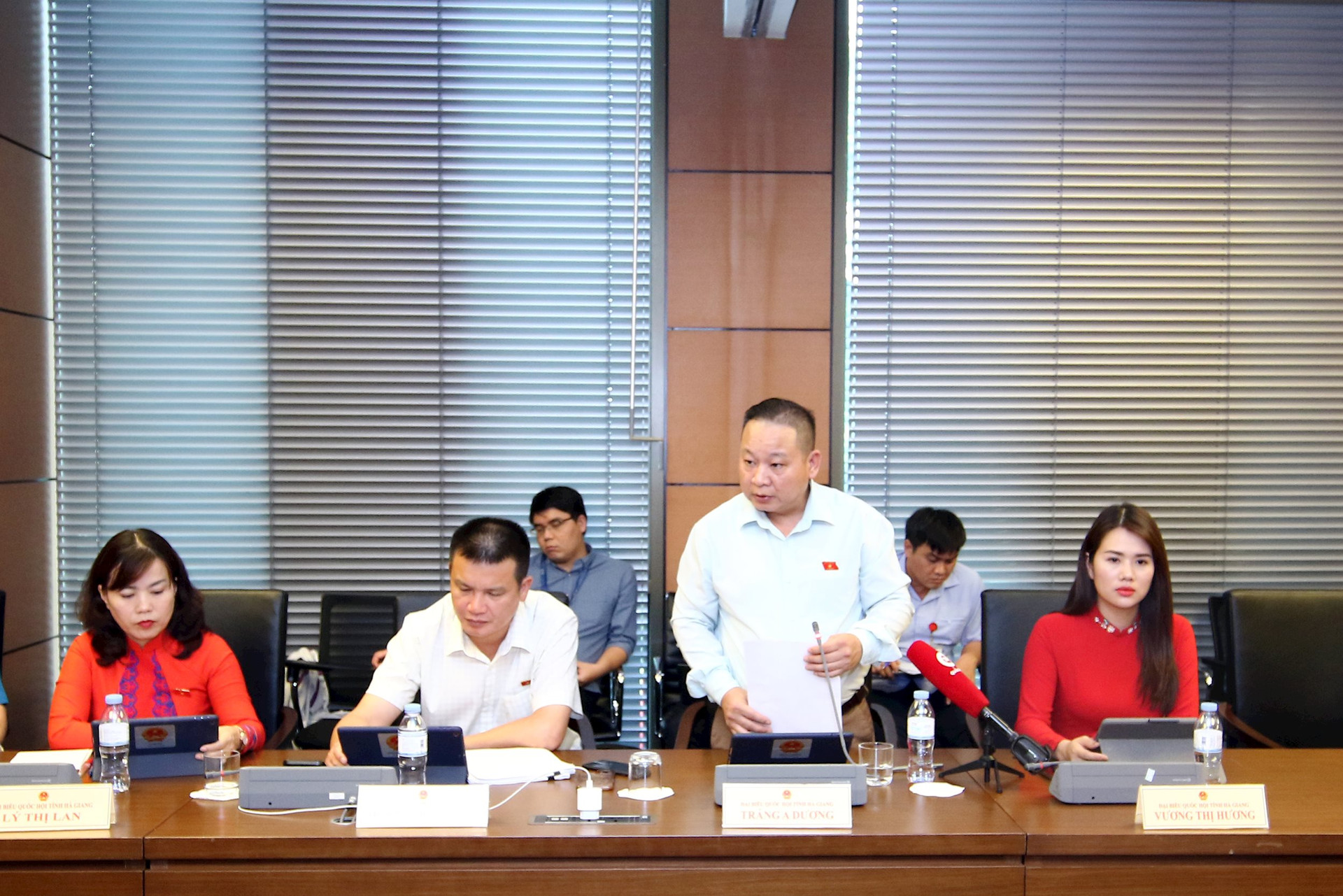
Providing detailed contributions on the contents and explanation of terms (Article 3), delegates suggested studying and supplementing the concepts: reuse of used water, water circulation, and improvement of water quality to ensure the contents of the amended Law on the economical and efficient use of water and the reuse of used water because water is an invaluable but not endless resource for humans in the present and future.
In addition, it is recommended that the drafting authority study and supplement the investment and construction of water exploitation and use works for purposes that must be consistent with regional planning, provincial planning, river basin master planning and other specialized technical planning. In order to ensure more specific and strict exploitation and use of water resources through comprehensive master plans of competent authorities from central to local levels.
Regarding the exploitation and use of water resources for domestic use (Article 45), the delegate pointed out that Point a, Clause 1 of the draft Law stipulates: “Investing in and supporting projects to supply domestic water and clean water, with priority given to ethnic minority areas, border areas, islands, water-scarce areas, areas with polluted water sources, severe degradation, saltwater intrusion, areas with difficult socio-economic conditions, and areas with especially difficult socio-economic conditions”. The delegate suggested rewriting as follows: “Investing in and supporting projects to supply domestic water and clean water, with priority given to ethnic minority areas and mountainous areas, border areas, islands, water-scarce areas, areas with polluted water sources, severe degradation, saltwater intrusion, areas with difficult socio-economic conditions, and especially difficult socio-economic conditions” for brevity and ease of understanding.
Regarding the settlement of disputes and disagreements on international water resources (Article 75), in Clause 2, the delegate proposed to rewrite it to be concise and easy to understand, as follows: "Disputes and disagreements on international water resources occurring in river basins with international river basin organizations in which the Socialist Republic of Vietnam participates shall be resolved within the framework of that international river basin organization".
Source


![[Photo] Ho Chi Minh City holds funeral for former President Tran Duc Luong](https://vphoto.vietnam.vn/thumb/1200x675/vietnam/resource/IMAGE/2025/5/24/9c1858ebd3d04170b6cef2e6bcb2019e)

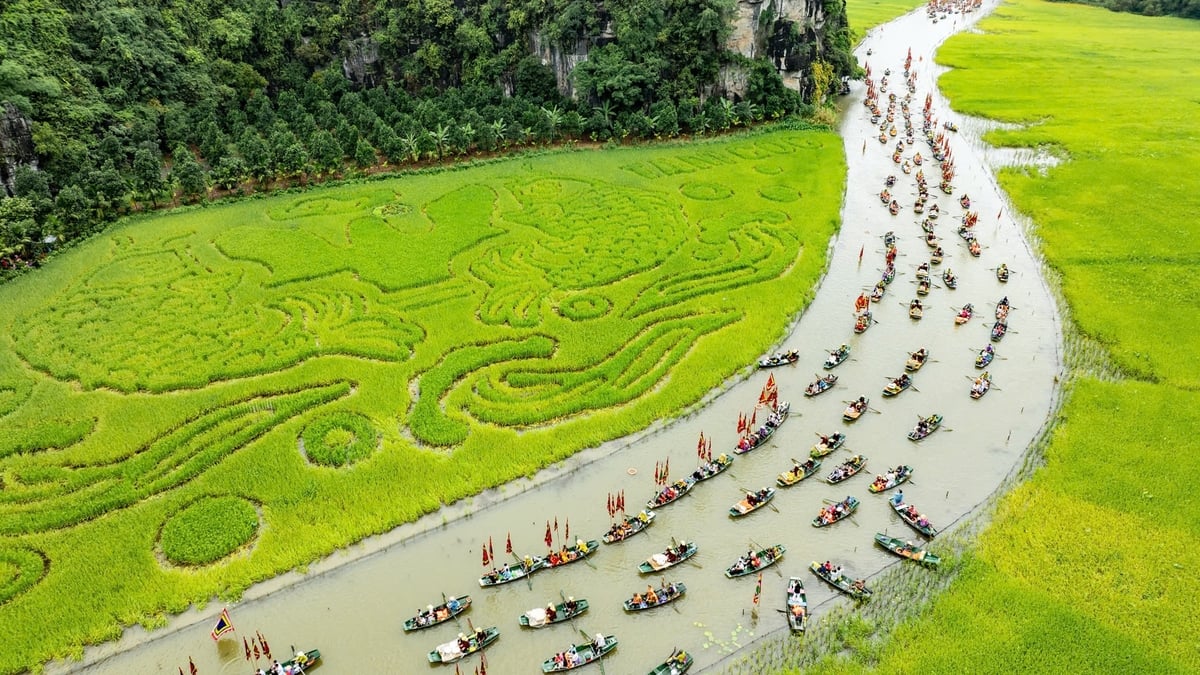
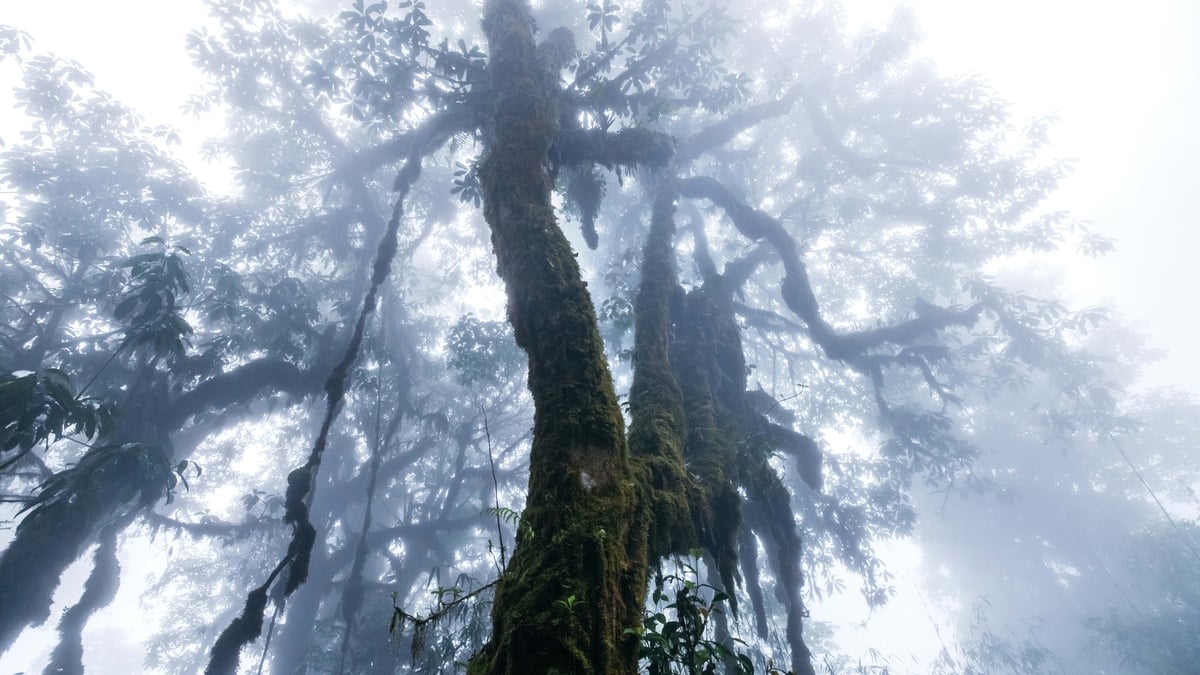

![[Photo] Party and State leaders visit former President Tran Duc Luong](https://vphoto.vietnam.vn/thumb/1200x675/vietnam/resource/IMAGE/2025/5/24/960db9b19102400e8df68d5a6caadcf6)






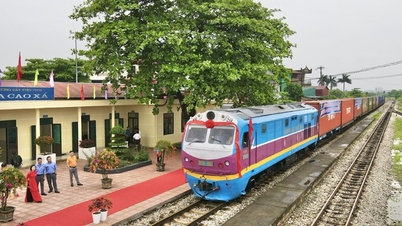

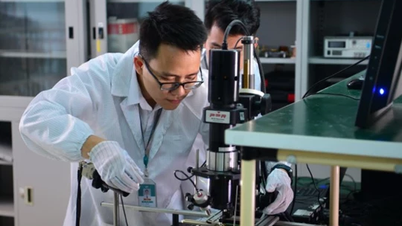


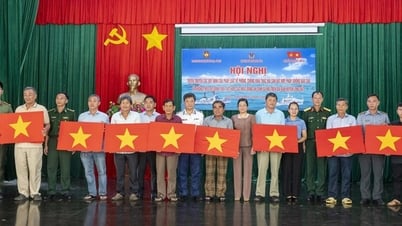

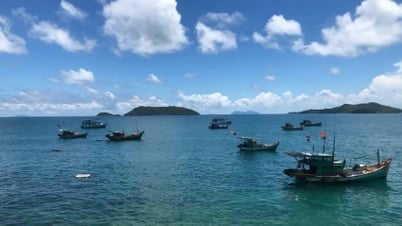

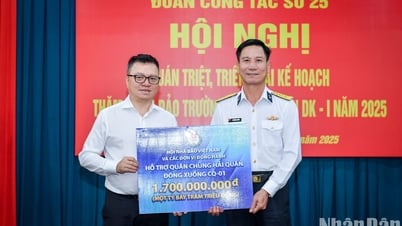
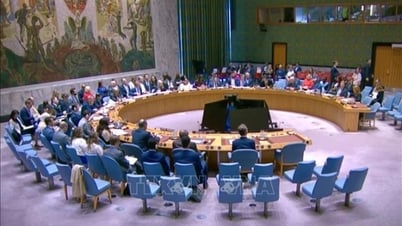
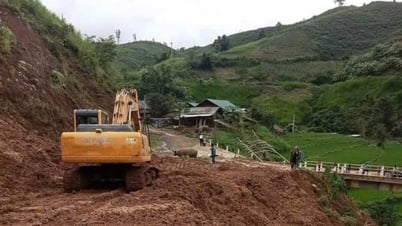

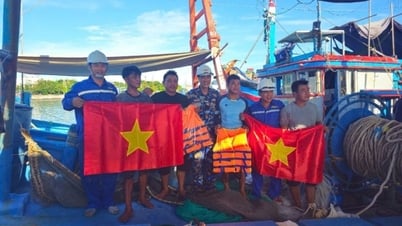










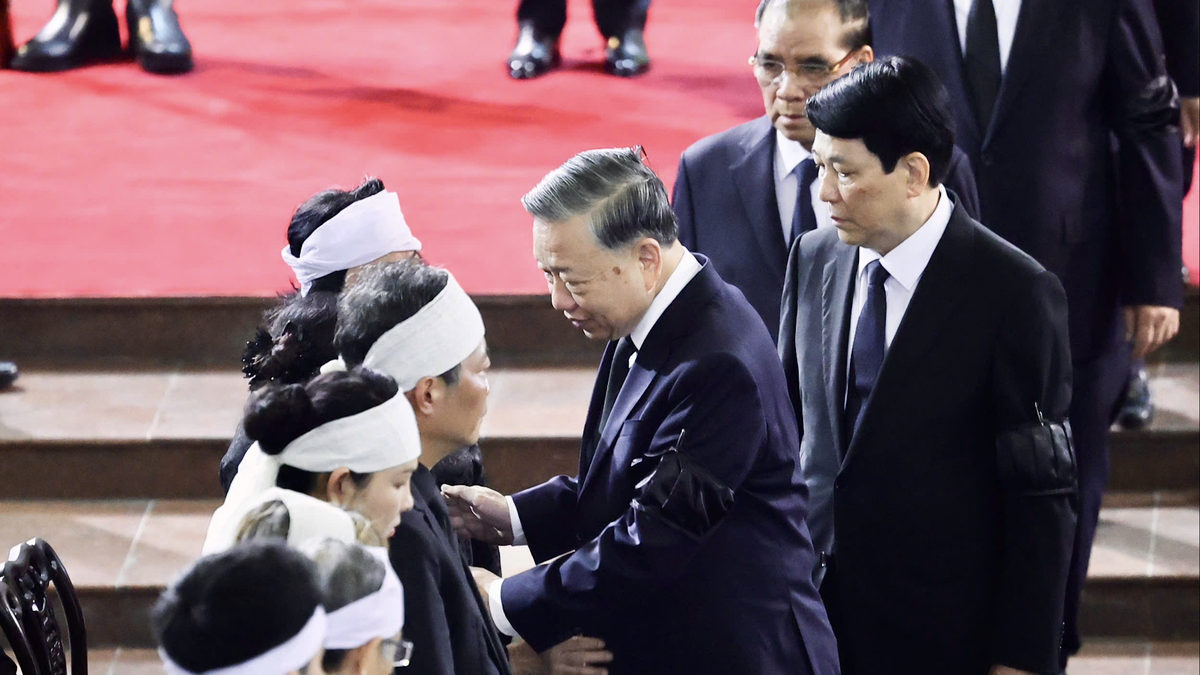
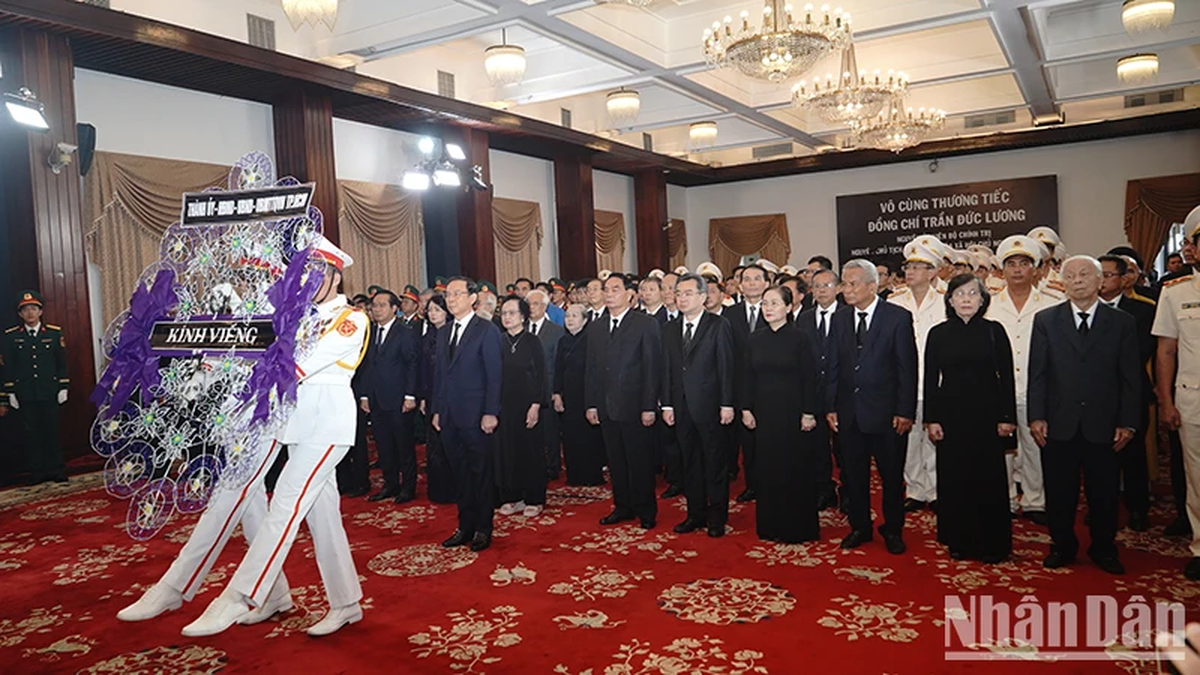
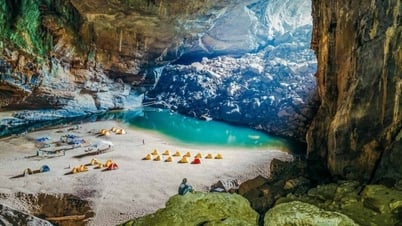


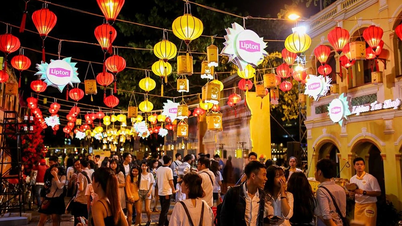

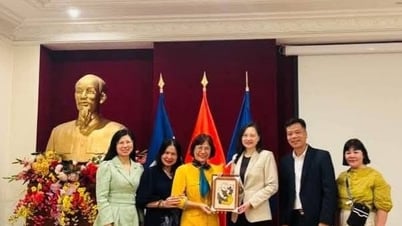

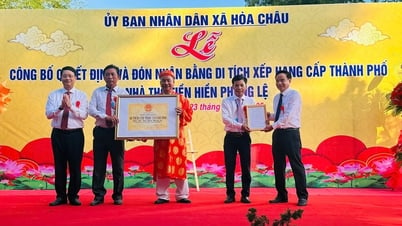






















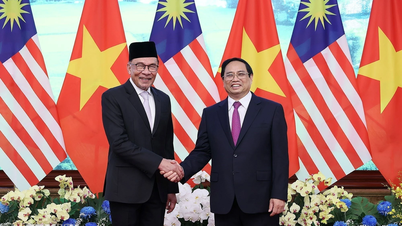

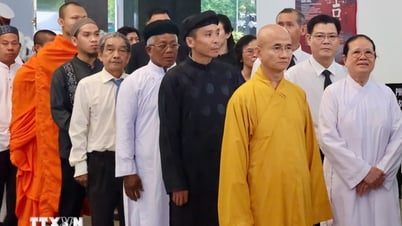

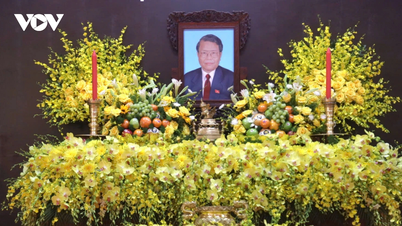
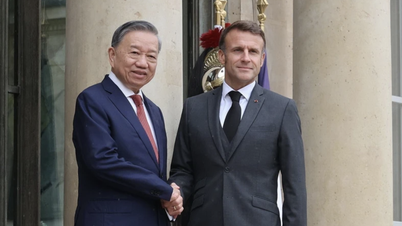
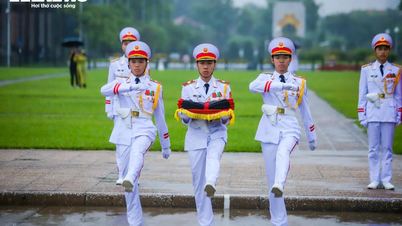








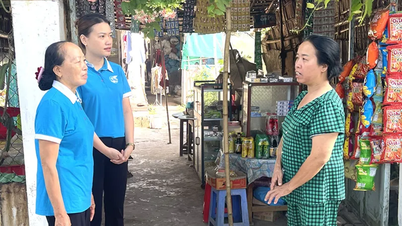



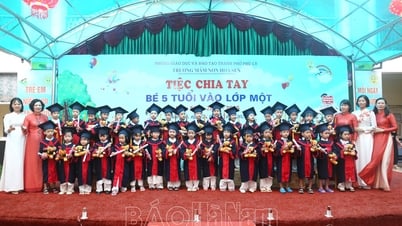

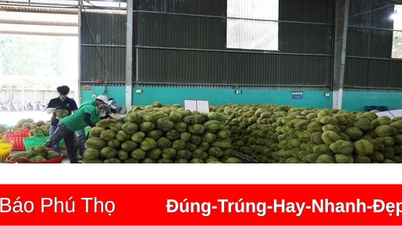

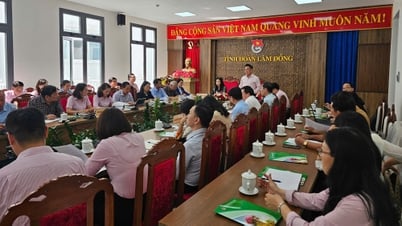

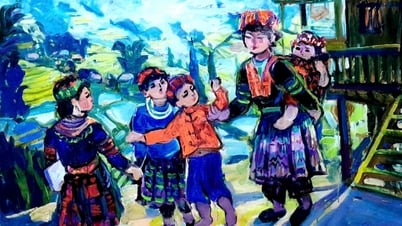











Comment (0)